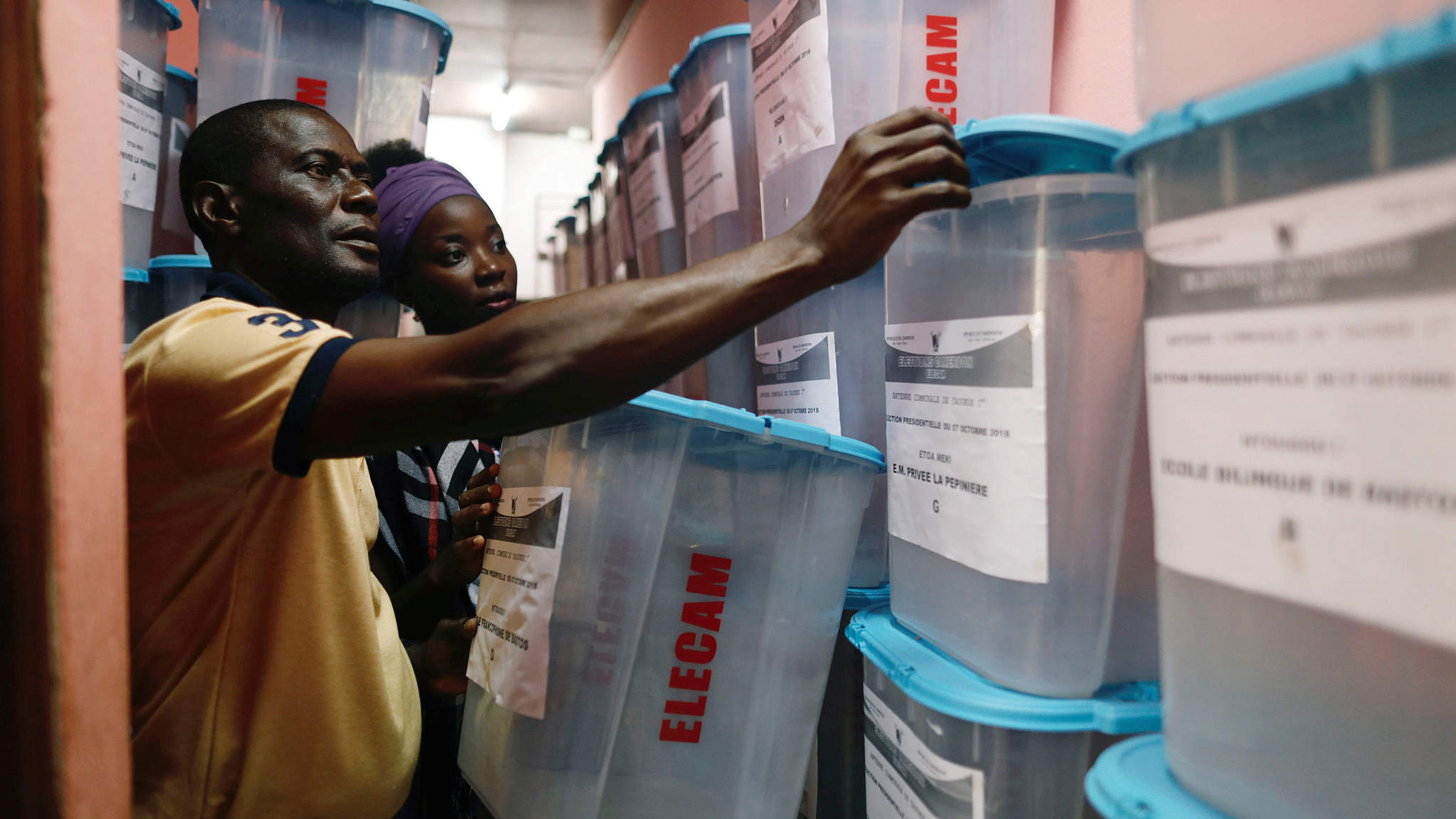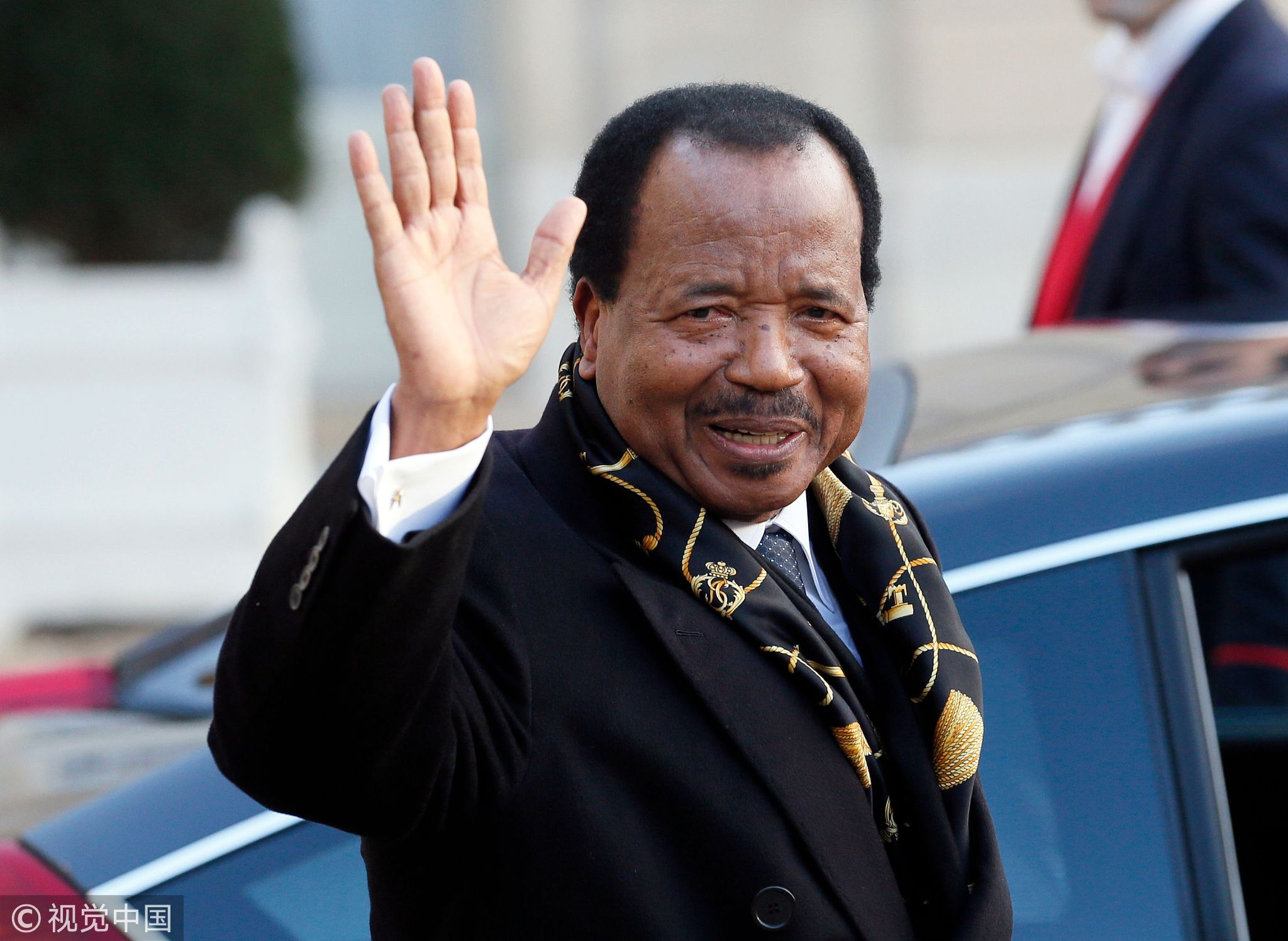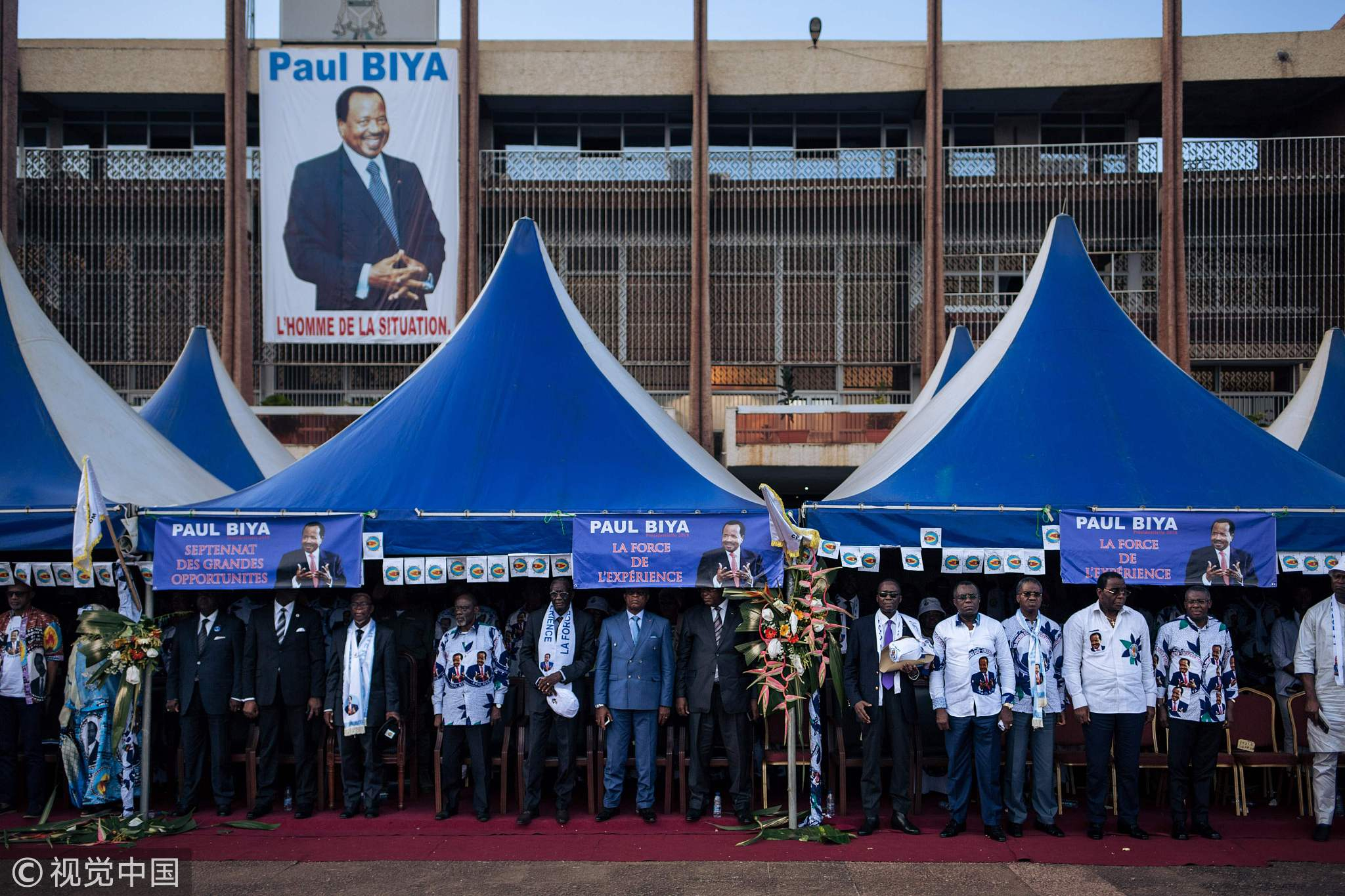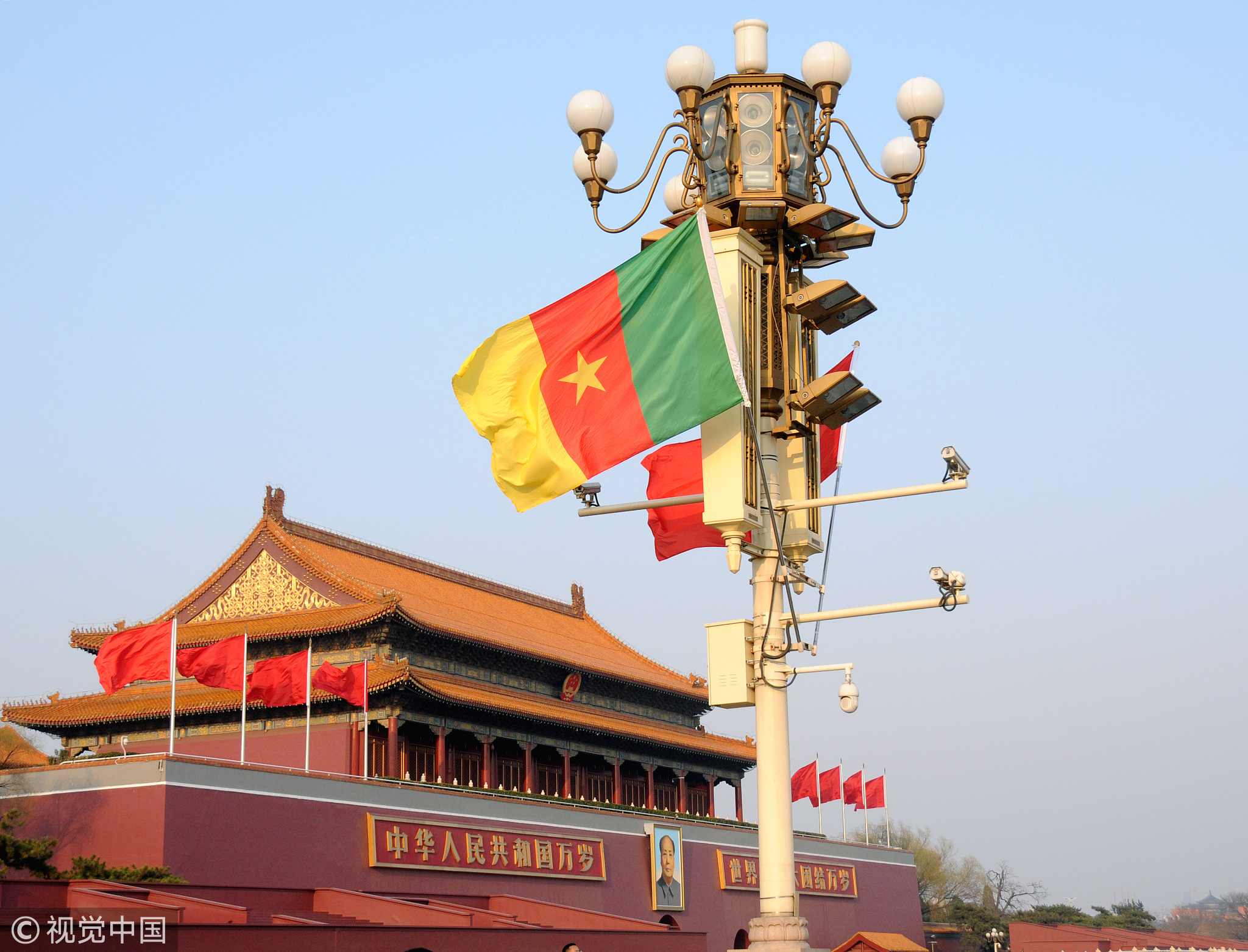
Opinions
13:08, 07-Oct-2018
Opinion: What does Cameroon's presidential election mean for us?
Updated
12:39, 10-Oct-2018
Shen Shiwei

Editor's note: Shen Shiwei is a research fellow of the Charhar Institute and former government relations and business consultant for Chinese enterprises' overseas investment mainly in the Middle East and Africa. The article reflects the author's opinion, and not necessarily the views of CGTN.
On Sunday, voters in Cameroon will decide if 84-year-old President Paul Biya will extend his 36 years in office by winning a new seven-year mandate. How will this election affect Cameroon and its partners?

Cameroon President Paul Biya waves as he leaves the Elysee Palace in Paris following a meeting with his French counterpart, file photo taken on January 30, 2013. /VCG Photo
Cameroon President Paul Biya waves as he leaves the Elysee Palace in Paris following a meeting with his French counterpart, file photo taken on January 30, 2013. /VCG Photo
Cameroon's defining busy election years
It has been a busy electoral calendar year for the central African country starting in March. President Paul Biya's ruling party Rassemblement Democratique du Peuple Camerounais (RDPC) won an overwhelming majority of seats in senatorial elections. As for parliamentary elections, it was postponed a year until October 2019 after lawmakers adopted a bill in early July.
The ruling RDPC won in nine out of Cameroon's 10 regions with the opposition party Social Democratic Front (SDF) winning only in one of the Anglophone regions – the northwest.
On the presidential vote, some complex issues and uncertainties shall be considered – mainly, the political and social turbulence in the northwest and far north regions.
Separatist rebels in the Anglophone regions have been fighting government forces and police since proclaiming an autonomous republic of "Ambazonia" in October 2016. They complain that the English-speaking regions have been marginalized since unification. The local government announced a 48-hour curfew from September 30 to October 1.
At the same time, the jihadist group Boko Haram is also active in the country's far north region in recent years. On fighting the insurgents in this region, Cameroon has joined a military combat framework along with Niger, Chad and Nigeria.
Cameroon's vital position
As a mostly French-speaking country and one of the bigger economies in central Africa, Cameroon is vital to France's interest in the West African region. France has a strong and traditional influence in Cameroon's political, economic, and military and security issues.

The leaders of the ruling party in Cameroon, the RDPC, rise for the national anthem during an electoral rally in support of President Paul Biya in front of Yaounde City Hall, during an electoral rally on October 5, 2018 for the upcoming October 7 presidential elections. /VCG Photo
The leaders of the ruling party in Cameroon, the RDPC, rise for the national anthem during an electoral rally in support of President Paul Biya in front of Yaounde City Hall, during an electoral rally on October 5, 2018 for the upcoming October 7 presidential elections. /VCG Photo
France is Cameroon's largest investment source and foreign aid country. The Central African franc (FCFA), a regional currency, has strong bonds with the French economy. Moreover, both sides have conducted joint military actions like anti-terrorism.
The Anglophone crisis could destabilize the region by snowballing into neighboring countries. Therefore, perhaps a strong leader in Yaounde is needed.
As for the US, Washington has monitored its oil and military interest in Equatorial Guinea from Yaounde for many years. Cameroon and the US are partners in coordinating efforts against Boko Haram and other regional terrorist groups. Moreover, the US would like to be more involved in the Gulf of Guinea. Cameroon is a good partner while France is carefully watching Washington's intentions in this French-speaking majority region.
China and Cameroon's commitment is beyond partnership
Cameroon and China share longstanding bilateral and diplomatic relations that have been marked by a number of state visits to both countries.
Cameroonian President Paul Biya was the first African leader to visit China in March. Five months later, President Paul Biya visited China again to attend the Forum on China-Africa Cooperation. It was his seventh trip to China. Both sides signed agreements on economic and technological cooperation, human resources development, infrastructural construction and industrial cooperation.

Chinese and Cameroonian national flags are hoisted at Tian'anmen Square in Beijing, welcoming Cameroon President Biya's visit to China, March 22, 2018. /VCG Photo
Chinese and Cameroonian national flags are hoisted at Tian'anmen Square in Beijing, welcoming Cameroon President Biya's visit to China, March 22, 2018. /VCG Photo
The Kribi Deep-sea Port showed in the welcoming program at the opening ceremony of the FOCAC Summit is an example of the two countries' relationship. The port is built by China Harbor Engineering Company Ltd. (CHEC) and financed by Chinese EXIM Bank. It is estimated that the fully operated Kribi port will surpass Douala, Cameroon's biggest port at present and the economic capital which handles 95 percent of Cameroon's import and export. It is expected that Cameroon's port city of Kribi will accelerate the country's economic growth.
Years of pragmatic results have shown the solid foundation for China-Cameroon bonds. Cameroon's leadership understand the real meaning behind a sincere partnership.
(If you want to contribute and have specific expertise, please contact us at opinions@cgtn.com.)

SITEMAP
Copyright © 2018 CGTN. Beijing ICP prepared NO.16065310-3
Copyright © 2018 CGTN. Beijing ICP prepared NO.16065310-3